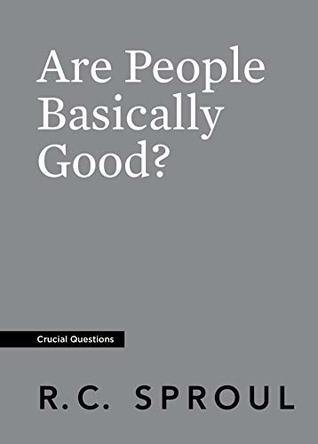More on this book
Community
Kindle Notes & Highlights
Evidently, man is the only one of these eighty-some varieties of primate that has a problem with nakedness—and therefore he has a problem with guilt. Man is the only creature in all of creation that has artificial garments, and the Scriptures tell us that this is not to keep us warm but to cover our shame.
epistemology, which is the theory of knowing. It undergirds all science. It is the study of the question, “How do we know what we know?”
Man’s whole life revolves around work, and much of the history of civilization, especially the history of warfare, has to do with a conflict over economic forces and the yield of human labor.
Calvin made the observation that man is a fabricum idolorum—an idol factory—so committed to religion that, even if he removes himself from the living God, he will replace his concept of God with a god made of his own hands. Luther, in similar fashion, commented that “Man, if he has no God, will make an idol,” because he has to have something.
A very old error has made a comeback in recent generations, even among evangelical Christians, called the trichotomy view. It teaches that our humanity is composed of three distinct aspects: body, soul, and spirit. One of the vehicles through which this view has reemerged is Watchman Nee, a Chinese church leader who integrated Eastern thinking into Christian thought. Trichotomy was condemned in the fourth century. Its fundamental basis is that, because the body and the soul are in irreconcilable conflict, the only way they can be brought together is through a third party—a mediator, the
...more
One of the great mottos of the Protestant Reformation was the Latin phrase sola gratia—by grace alone. This phrase wasn’t invented by the sixteenth-century Reformers. Its roots are in the theology of Augustine of Hippo, who used it to call attention to the central concept of Christianity, that our redemption is by grace alone,
Two things that every human being absolutely must come to understand are the holiness of God and the sinfulness of man.
These topics are difficult for people to face. And they go together: if we understand who God is, and catch a glimpse of His majesty, purity, and holiness, then we are instantly aware of the extent of our own corruption.
When we sin, we want to describe our sinful activity in terms of a mistake, as if that softens or mitigates the guilt involved. We don’t think it’s wrong for a child to add two and two and come up with five. We know the answer’s wrong, but we don’t spank the child and say, “You’re bad, because you made five out of two and two instead of four.” We think of mistakes as being part of the human condition. But as I said to that pastor, if one of us is wrong, it would be because he came to the Scriptures while wanting it to agree with him, rather than wanting to agree with the Scriptures. We tend to
...more
But for a deed to be good in the sight of God, not only must it conform externally to the law of God, but it also must flow out of a heart that loves God completely. If any deed I do has the slightest admixture of selfishness, pride, arrogance, or anything else that mars that work, it’s not good in the sight of God.
When we talk about original sin, we don’t mean the sin that Adam and Eve committed, but the result of that first sin. Original sin refers to our sinful condition. In other words, we sin because we are sinners; it is not that we are sinners because we sin.
The only way we can possibly be obedient to the commandments of God is if He helps us in the process by extending grace to us and enabling us to do what He calls us to do.
You won’t find the phrase free will in the Bible. Some people argue that though the words may not be there, we can certainly find the concept. And we do—in the sense that the Bible says much concerning the responsibility that we have to make choices. But the emphasis in Scripture, in light of original sin, is on human bondage—of man enslaved to his own wicked desires.
Augustine would say, yes, you have a free will—but that will, and the choices that you make with it, are deeply influenced by who and what you are.
He said that those who are fallen are addicted to sin.
Augustine was explaining the biblical concept that freedom means the ability to choose what you want, whereas having free will means having the power to make choices according to what you want rather than according to what is imposed upon you by someone or something else.
Not only may a free person choose according to his desires, but to be free means he must choose according to the deepest desire he has at the moment. We always choose according to the strongest inclination or the greatest desire that we have. We cannot choose against our strongest desires. If someone had a terrible temptation to do something he desperately wanted to do but which was against God’s law, but at the last minute he had the moral courage to say no, it would be because in the end his desire to obey God was greater than the draw of the temptation. We always act according to the
...more
Augustine would say man is dead in his sins. He has no desire for Christ, and the only way he will ever choose Christ is if God softens his stone-cold, recalcitrant heart and puts in him a desire for Christ.


